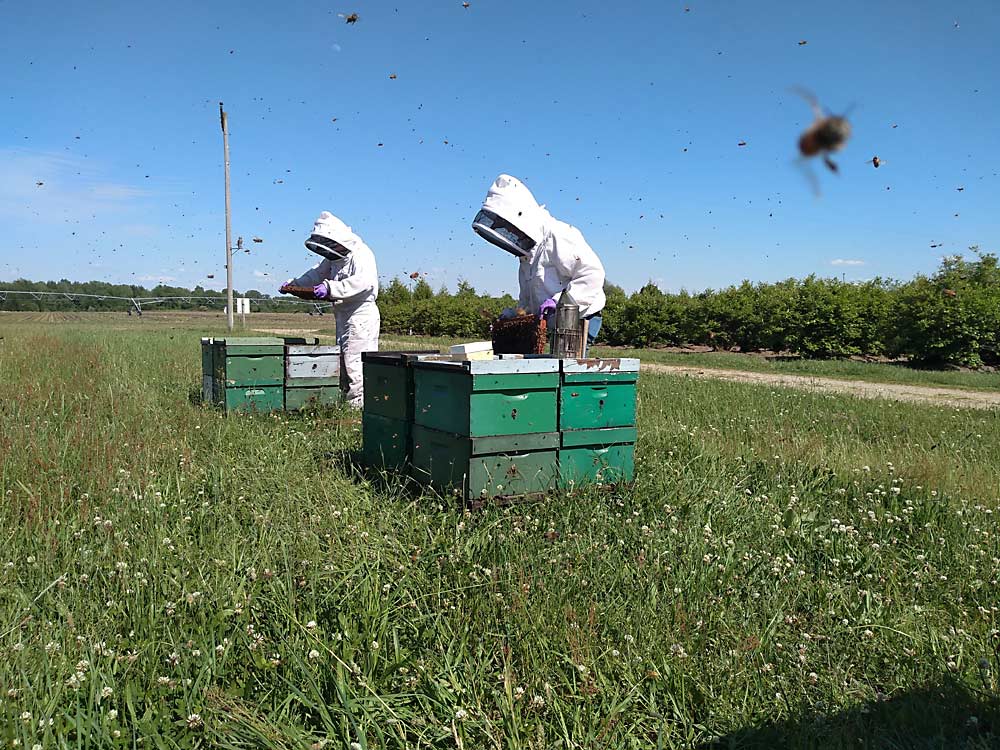
The U.S. Department of Agriculture’s Specialty Crop Research Initiative recently gave a four-year, $2 million grant to Michigan State University to aid a blueberry pollination project.
The project, led by MSU entomology professor Rufus Isaacs, includes researchers from Oregon State University, the University of Florida and Washington State University. The goal is to improve blueberry growers’ use of honey bees and wild bees.
The highbush industry relies heavily on pollination for high yields of quality fruit. New cultivars and horticultural practices have increased the density of blueberry flowers per acre, but there has been little adjustment to recommendations for how to best manage pollination in these modern systems, according to an MSU news release.
“There have also been changes in the bee world, with fewer feral honey bees and, in some regions, fewer wild bees,” Isaacs said in a statement. “This has increased grower dependence on renting managed honey bee hives to pollinate crops. Our project will lead to better recommendations for growers on hive stocking strategies needed for adequate pollination of new cultivars.”
Isaacs said the agricultural weather networks used by growers across the country to make pest management and horticultural decisions are not currently used for blueberry pollination. The new project will utilize these networks to help growers predict when the pollination period will happen, and to warn them of extreme conditions such as frost or high heat that might limit pollination, according to the news release.
“One of the main goals of the project is to combine expertise from plant breeders, horticulturalists, entomologists and online weather systems to develop an online pollination planner tool to help growers decide how best to pollinate their fields,” Isaacs said in a statement.
Isaacs and assistant professor Meghan Milbrath will lead the Michigan components of the project. Other team members include Washington State University’s Lisa DeVetter and Suzette Galinato, the University of Florida’s Rachel Mallinger, and Oregon State University’s Andony Melathopoulos.
—by Matt Milkovich






Leave A Comment